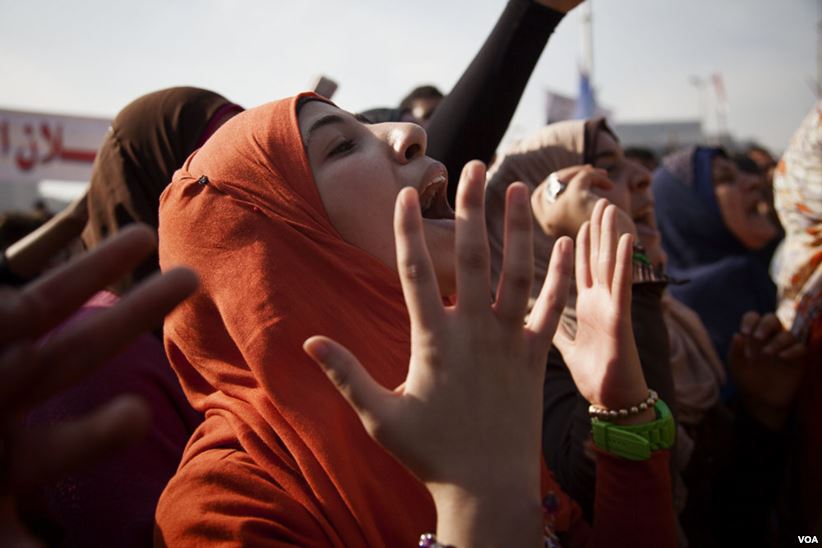من ساحة الحرية في تونس، إلى ميدان التحرير في مصر، إلى ساحة الساعة في حمص، إلى ساحة اللؤلؤة في البحرين، وساحة الشهداء في بيروت، وكل العواصم العربية، خرجت مظاهرات واحتجاجات تطالب بالتغيير والخبز والحرية والعدالة الاجتماعية. وفي السودان هتفت آلاء صالح “الطلقة ما بتحرق.. بيحرق سكات الزول، حبوبتي كنداكة”، لتلاقيها الفلسطينيات #الطالعات لتقلن “لا وجود لوطن حرّ إلّا بنساء أحرار”. نساء عربيات شاركن بقيادة هذه المظاهرات ومارسهن حقهن بالتجمع السلمي، وتعرّضن بسبب ذلك لكل أشكال القمع والاضطهاد والعنف.
حق المرأة في التجمع السلمي محمي بموجب ثمان وثائق دولية رئيسية لحقوق الإنسان: الإعلان العالمي لحقوق الإنسان (المادة 20) والعهد الدولي الخاص بالحقوق المدنية والسياسية (المادة 21) والعهد الدولي الخاص بالحقوق الاقتصادية والاجتماعية والثقافية (المادة 8) واتفاقية القضاء على جميع أشكال التمييز ضد المرأة (المادة 7) والاتفاقية الدولية للقضاء على جميع أشكال التمييز العنصري (المادة 5) واتفاقية حقوق الأشخاص ذوي الإعاقة (المادة 29) واتفاقية حقوق الطفل (المادة 15) والإعلان الخاص بالمدافعين عن حقوق الإنسان (المادتان 5 و 12).
لمتابعة القراءة يرجى الضغط هنا.
From Freedom Square in Tunisia to Tahrir Square in Egypt, from Clock Square in Homs to Pearl Square in Bahrain, from Martyrs Square in Beirut to all the Arab capitals, demonstrations and protests have taken place calling for change, bread, freedom, and social justice. Many women participated in and lead these demonstrations, exercising their right to peaceful assembly. However, many were also subjected to repression, persecution, and violence.
Women’s right to peaceful assembly is protected by eight major international human rights instruments: the Universal Declaration of Human Rights (Article 20), the International Covenant on Civil and Political Rights (Article 21), the International Covenant on Economic, Social and Cultural Rights (Article 8), and the Convention on the Elimination of All Forms of Discrimination against Women (Article 7) the International Convention on the Elimination of All Forms of Racial Discrimination (Article 5), the Convention on the Rights of Persons with Disabilities (Article 29), the Convention on the Rights of the Child (Article 15) and the Declaration on Human Rights Defenders (Articles 5 and 12). In this piece, we discuss the right to peaceful assembly for women and girls in the region and its importance in the feminist movement carried out by women-led associations and activists. The piece also discusses the challenges that women face when exercising this right and provides recommendations on how to protect it.
Read the full piece here (in Arabic only).
